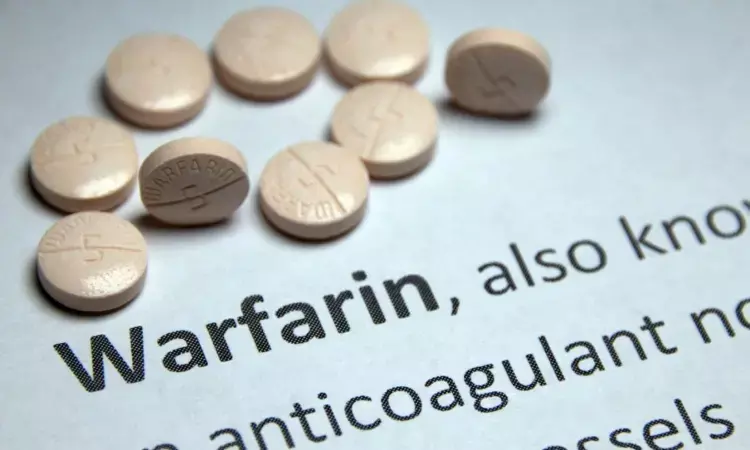- Home
- Medical news & Guidelines
- Anesthesiology
- Cardiology and CTVS
- Critical Care
- Dentistry
- Dermatology
- Diabetes and Endocrinology
- ENT
- Gastroenterology
- Medicine
- Nephrology
- Neurology
- Obstretics-Gynaecology
- Oncology
- Ophthalmology
- Orthopaedics
- Pediatrics-Neonatology
- Psychiatry
- Pulmonology
- Radiology
- Surgery
- Urology
- Laboratory Medicine
- Diet
- Nursing
- Paramedical
- Physiotherapy
- Health news
- Fact Check
- Bone Health Fact Check
- Brain Health Fact Check
- Cancer Related Fact Check
- Child Care Fact Check
- Dental and oral health fact check
- Diabetes and metabolic health fact check
- Diet and Nutrition Fact Check
- Eye and ENT Care Fact Check
- Fitness fact check
- Gut health fact check
- Heart health fact check
- Kidney health fact check
- Medical education fact check
- Men's health fact check
- Respiratory fact check
- Skin and hair care fact check
- Vaccine and Immunization fact check
- Women's health fact check
- AYUSH
- State News
- Andaman and Nicobar Islands
- Andhra Pradesh
- Arunachal Pradesh
- Assam
- Bihar
- Chandigarh
- Chattisgarh
- Dadra and Nagar Haveli
- Daman and Diu
- Delhi
- Goa
- Gujarat
- Haryana
- Himachal Pradesh
- Jammu & Kashmir
- Jharkhand
- Karnataka
- Kerala
- Ladakh
- Lakshadweep
- Madhya Pradesh
- Maharashtra
- Manipur
- Meghalaya
- Mizoram
- Nagaland
- Odisha
- Puducherry
- Punjab
- Rajasthan
- Sikkim
- Tamil Nadu
- Telangana
- Tripura
- Uttar Pradesh
- Uttrakhand
- West Bengal
- Medical Education
- Industry
Warfarin use speeds up aortic stenosis progression, ups chances of AVR and death: JACC

USA: Warfarin use accelerates the progression of aortic stenosis (AS) and increases the chances of aortic valve replacement (AVR) requirement, finds a recent study published in the Journal of the American College of Cardiology (JACC). Also, it may increase the death risk in patients with mild to moderate AS.
The study showed that those on warfarin had a greater reduction in the aortic valve area and a larger increase in mean gradient over time compared with patients taking a direct oral anticoagulant (DOAC). Also, after accounting for potential confounders, warfarin users were more likely to undergo AVR and to die from any cause.
Aortic stenosis is a complex disease process that is affected by multiple risk factors. Recent studies have shown a strong association between warfarin use and systemic, including vascular and valvular calcification. Therefore, Essa H. Hariri, Cleveland Clinic, OH, and colleagues aimed to evaluate the relationship between warfarin and direct oral anticoagulant use with disease progression and clinical outcomes in patients with mild to moderate AS.
For this purpose, the researchers collected data from the Cleveland Clinic Echocardiography Database. The analysis included 2,385 patients 60 and older (mean age 75; 44% women) who had native AS classified as mild (31%) or moderate (69%) and were treated between January 2008 and June 2018.
Based on the analysis, the researchers found the following:
- 23% were taking warfarin and 7% were taking a DOAC; the most common indication was atrial fibrillation (about 80%).
- Over a median follow-up of about 5.6 years, 30% of patients underwent AVR and 20% died.
- On multivariable adjustment, warfarin was associated with a greater risk of all-cause mortality compared with either no anticoagulation (adjusted HR 1.34) or DOAC therapy (adjusted HR 1.47). The findings were similar when stratified by the presence of CAD or LV function.
- Warfarin users also had a higher risk of AVR compared with those taking a DOAC (adjusted HR 1.46), whereas DOAC users had a lower risk of valve replacement compared with those who were not on any anticoagulation (adjusted HR 0.61).
- Compared with DOAC-treated patients, warfarin users had a greater median annualized change in aortic valve area (-7.02 vs -5.30 mm2) and a larger increase in mean gradient (1.63 vs 1.02 mm Hg).
The researchers wrote in their study, "Our findings suggest that the varied underlying pharmacodynamic mechanisms between warfarin and DOACs are central to the observed divergences in hemodynamic and clinical measures in AS."
Reference:
Hariri EH, Kassis N, Badwan OZ, et al. Impact of oral anticoagulation on progression and long-term outcomes of mild or moderate aortic stenosis. J Am Coll Cardiol. 2022;80:181-183.
Dr Kamal Kant Kohli-MBBS, DTCD- a chest specialist with more than 30 years of practice and a flair for writing clinical articles, Dr Kamal Kant Kohli joined Medical Dialogues as a Chief Editor of Medical News. Besides writing articles, as an editor, he proofreads and verifies all the medical content published on Medical Dialogues including those coming from journals, studies,medical conferences,guidelines etc. Email: drkohli@medicaldialogues.in. Contact no. 011-43720751


